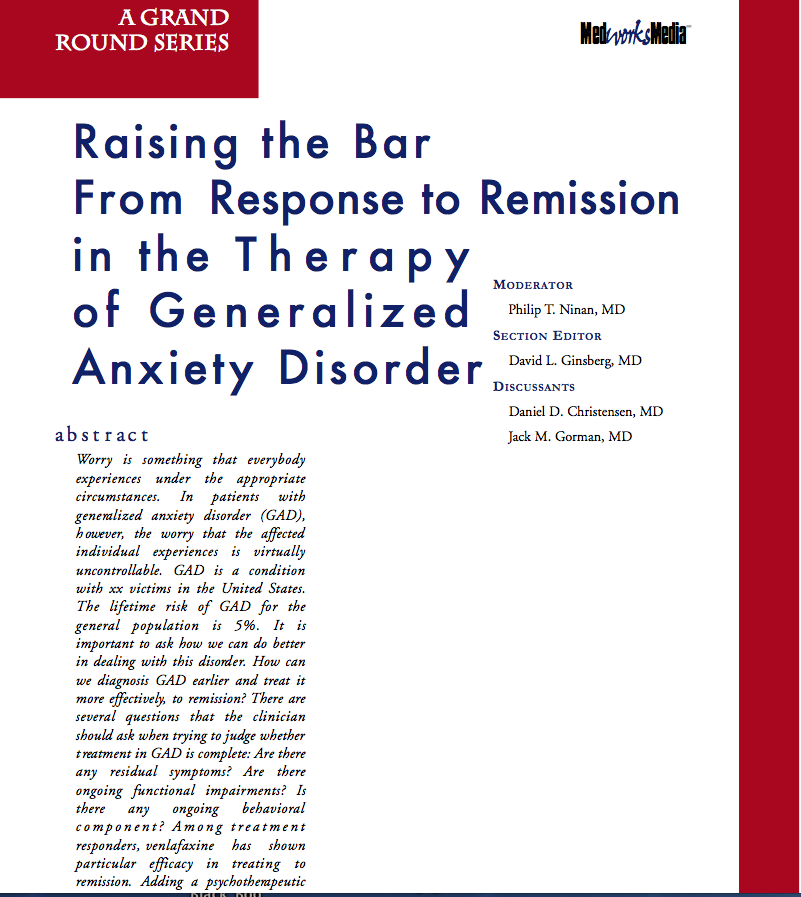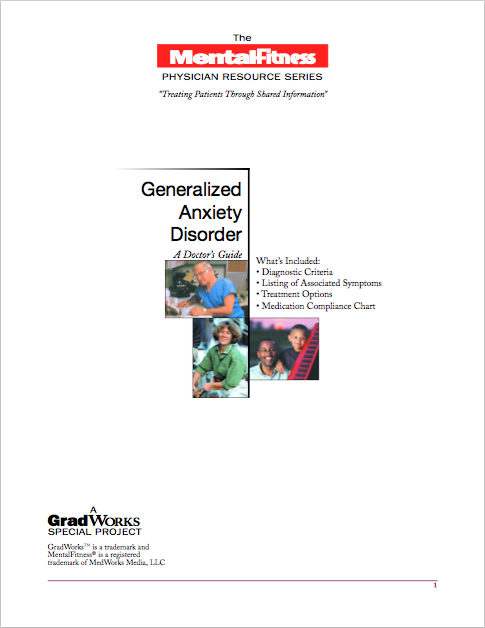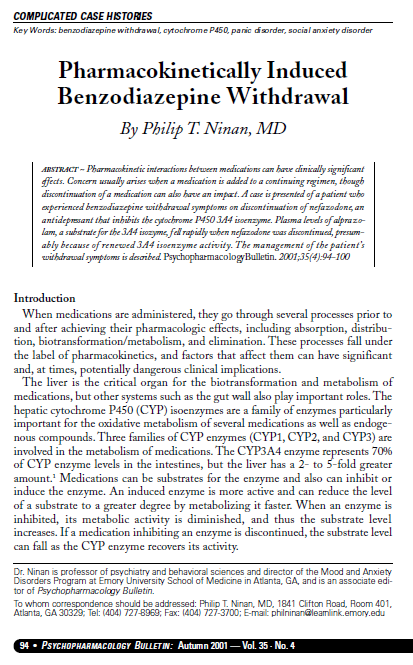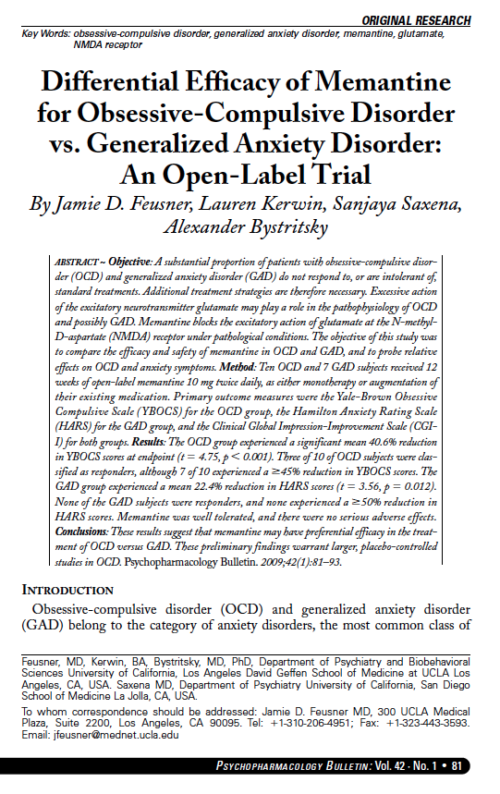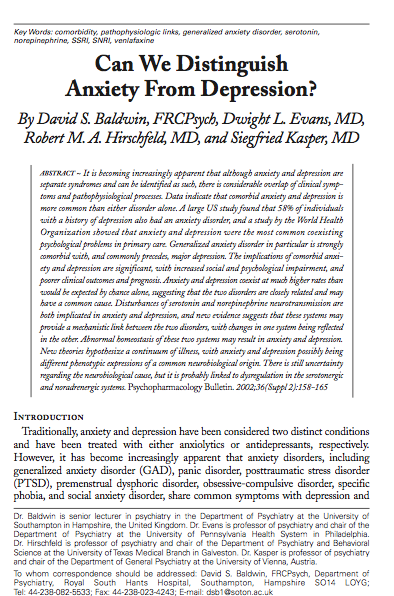Raising the Bar From Response to Remission in the Therapy of Generalized Anxiety Disorder
$10.00
Description
All GradWorks Special Projects are Subject to Medical Updates & are Available for Sponsorship via Unrestricted Educational Grant.
Raising the Bar From Response to Remission in the Therapy of Generalized
MODERATOR
Philip T. Ninan, MD
SECTION EDITOR
David L. Ginsberg, MD
DISCUSSANTS
Daniel D. Christensen, MD and Jack M. Gorman, MD
a b s t r a c t
Worry is something that everybody experiences under the appropriate circumstances. In patients with generalized anxiety disorder (GAD), however, the worry that the affected individual experiences is virtually uncontrollable. GAD is a condition with xx victims in the United States. The lifetime risk of GAD for the general population is 5%. It is important to ask how we can do better in dealing with this disorder. How can we diagnosis GAD earlier and treat it more effectively, to remission? There are several questions that the clinician should ask when trying to judge whether t reatment in GAD is complete: Are there any residual symptoms? Are there ongoing functional impairments? Is there any ongoing behavioral component? Among treatment responders, venlafaxine has shown particular efficacy in treating to remission. Adding a psychotherapeutic treatment to the medication regimen is also recommended.


